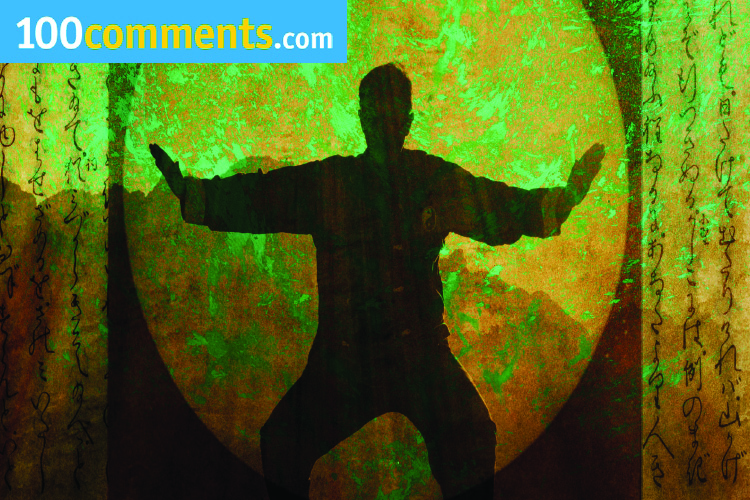There is a subtle yet potent energy system circulating in our body which in the traditional Chinese medicine is recognised as Qi or Chi – loosely translated as ‘breaths.’ The Japanese named it ‘Ki,’ while in Indian medicine, it is known as “Prana.”
Qi energy or breath is extremely vital as it is considered the ‘life essence’ or ‘vital life energy’ that maintains and nurtures our physical body, mind and spirit. It is often characterised as moving energy that changes quickly and replenishes daily. This powerful energy is made up of electric magnetic, and is both an infrasonic (generating or using sound waves below that of audio-frequency range) as well as infrared vibrations circulating through our cells, tissues, muscles and internal organs. For those who doubt its existence, the Qi energy can be captured through Kirlian photography, proving that it is a real force.
Although it moves and changes rapidly, the Qi energy does not move haphazardly within us but through meridians or energy channels in our body. The meridians form a network of interconnected pathways within our body that links our organs, skin, flesh, muscle and bones as a unified force. The network runs from deep within our organs to the smaller ones; the surface of our skins. This is the same network that is used in Chinese acupuncture practices which many of you may have seen posters of human figures showing various dots and network of lines running from top of the head to the tip of the toes.
When this Qi energy’s flow is not impeded, you are healthy but when it is blocked at any point within the well distributed network or channels, then illness results as the Qi energy is unable to reach the affected part of the body that it is supposed to nurture. This will result in the cells, tissue and organs to suffer and ‘suffocate’ due to lack of the critical Qi energy.
The Qi energy that flows through the meridians serves two highly important roles; one is to protect harmful outside energy from entering into our body (e.g., bacteria and viruses), and the other is to indicate the presence of harmful energy already inside the body in the form of symptoms (e.g., aches, pains, heat or cold). Again, Kirlian photography is often able to verify this.
Any type of disease or illness indicates that the flow of Qi energy within the meridians or channels is blocked or out of balance. The outcome of this is that one part of the body gets excess Qi energy while another part gets too little of it. If this continues, then the organs in certain parts of the body will become overactive while the Qi energy deficient part becomes underactive or fatigued. If this continues, the person will suffer from some serious diseases – sooner or later.
Akin to the air that we breathe, Qi energy is the very source of our vitality. It is the very essence that supply us the energy to live a healthier and fruitful life. It inspires and drives us to live a life of purpose.
Table of Contents
QIGONG FIVE BASIC ELEMENTS HELP YOU TO LIVE A LIFE OF PURPOSE
Qigong should never be seen as a magical cure or fix-all answer to every ailment that modern medicine cannot cure. Even though Qigong is rather new to the western system, it is in fact an ancient Chinese art of healing, going back almost 5,000 years. Its popularity can be placed on its basic yet practical approach and understanding to heal diseases by involving the body, mind and spirit and also the five basic elements to offer maximum benefit. If the five basic elements are present, even new practitioners can obtain immediate results and feel positive about their practice. On the other hand, if any of these elements are missing, then the Qigong exercise cannot offer much benefit.
THE FIVE BASIC ELEMENTS OF QIGONG
The five elements are movement, breathing, concentration, and relaxation, and attitude. Now let us analyse them separately.
MOVEMENT
Anything that stagnates leads to staleness. This holds true to our physical self as well. Any type of movement and activity is essential for our health. In Qigong, small movements of the body are believed to circulate little energy while big movements will circulate large energy. Meaning, one can perform Qigong in slow and steady movements with feelings or move rapidly yet smooth as long as it is not done jerkily and violently. It all depends on your purpose and intent in performing Qigong exercises.
BREATHING
Proper rhythmic breathing is the cornerstone of Qigong exercises where deep breathing is emphasised over surface or shallow breathing as it oxygenates the whole body and massages the internal organs. Not only that, slow, focused and deep breathing also help to set up a rhythm or timing for one to relax deeply where one can become calm and centered and let go of all stress and anxiety.
CONCENTRATION
Concentration helps to keep the paths of mental activities open and viable. When mind is not activated enough, it will begin to slow down and will be unable to perform to its peak potential when the situation requires it. It also becomes lazy and lethargic if it goes unused for long. An active mind through precise, definite, and focused concentration is important to achieve positive results in Qigong.
RELAXATION
A constantly urging, doing and pushing nature of our monkey mind impede relaxation which is highly important in Qigong which cannot be attained under a driving, pressure-filled attitude. The mind and body cannot function well under such unrelenting conditions which need time to settle down and to get back to the centre of stillness within. Only calmness and ease allows you to get in touch with your inner self. Sleep is not necessarily relaxation, and sleep is not sufficient in today’s fast pace and instant lifestyle for a complete mind-body-spirit relaxation, Qigong exercises offer an answer.
ATTITUDE
Your attitude plays an important role in your Qigong exercise. How positive or effective you want your exercise to be depends on your attitude. Even if you do everything else well – the movement, breathing, concentration, and relaxation, if your attitude is not well attuned, all else will fail.
Simply put, your attitude determines whether you choose empowerment or dis-empowerment, truth or illusion, health and recovery, or its opposite – discomfort and disease. For an effective Qigong result, one should believe in their ability, inner strength and capability to derive optimum benefit from. Let the five basic elements of Qigong help you in leading a healthier life.
















